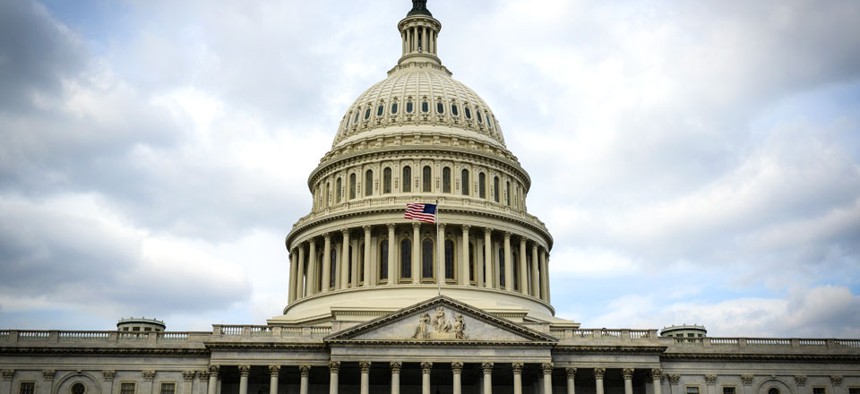
Brandon Bourdages/Shutterstock.com
House Unanimously Approves Back Pay For Furloughed Feds
Senate is expected to pass bill, and President Obama said he will sign it into law.
This story has been updated.
The House on Saturday passed legislation that will give furloughed federal workers back pay when the government reopens.
The Senate, which could take up the bill as early as Saturday, also is expected to approve the Federal Employee Retroactive Pay Fairness Act.
In a rare instance of bipartisanship, House lawmakers unanimously agreed to reimburse federal employees forced to take unpaid leave due to the government shutdown for time missed, “as soon as practicable.”
Several Democrats and Republicans took to the floor early Saturday morning to praise the federal workforce and pledge to grant them back pay for the duration of the government shutdown, now heading into its second week.
Sen. Ben Cardin, D-Md., introduced identical legislation in the upper chamber. A spokeswoman for Cardin said the schedule is “only a matter of which [chamber] can move first,” adding she expects Senate Democrats to approve the measure once they receive it.
President Obama on Friday announced his support for the legislation and will sign it into law when it reaches him.
“Federal workers keep the nation safe and secure and provide vital services that support the economic security of American families,” the White House said in a statement. “The administration appreciates that the Congress is acting promptly to move this bipartisan legislation and looks forward to the bill's swift passage.” The White House added the bill would not reduce the need to reopen government: “This bill alone, however, will not address the serious consequences of the funding lapse, nor will a piecemeal approach to appropriations bills.”
Federal employee unions praised the passage of the bill but also implored Congress to reopen government.
“NARFE is pleased that the House was able to come together to pass this bill, which will help to minimize the collateral damage inflicted on federal workers during the shutdown,” said Joseph A. Beaudoin, president of the National Active and Retired Federal Employees Association, in a statement. “Many of these employees have already endured unpaid furloughs due to sequestration and over 1,000 days of a federal pay freeze. That said, now it is time to reopen the government. Federal employees are proud of the work they do on behalf of this country. Congress must let them continue to do it.”
Excepted federal employees required to work during the shutdown are guaranteed back pay by statute. The remaining 900,000 federal employees who are currently furloughed, however, need congressional action to receive pay for the duration of the shutdown. In previous government shutdowns, Congress has always approved retroactive pay for the federal workforce, and employee groups and unions have repeatedly called on Congress to again ensure compensation. But prospects for back pay were less certain this time around, given the fiscal climate.
With no end in sight to the government shutdown, lawmakers have taken to debating and voting on separate bills to reopen portions of the government and ensure federal workers are paid, regardless of furlough status. Defense Secretary Chuck Hagel on Saturday announced that the Pay Our Military Act, which Obama signed into law earlier this week, will allow the Pentagon to call back most --but not all -- of the 400,000 civilians who had been furloughed due to the shutdown. The law ensures all active-duty and reserve members of the armed forces, as well as any civilians and contractors working in support of those forces, are paid on time regardless of the shutdown’s duration.
House Democrats on Friday unveiled a plan to circumvent the GOP leadership to hold an up or down vote on a “clean” continuing resolution to fund the government. The measure, introduced by Reps. Chris Van Hollen, D-Md., and Nita Lowey, D-N.Y., requires a majority of House members to sign what’s called a discharge petition.
A discharge petition can be filed after seven legislative days from the introduction of the resolution. If a majority of House members sign the discharge petition, a floor vote on a government funding bill could happen as early as October 14.
(Image via Brandon Bourdages/Shutterstock.com)







